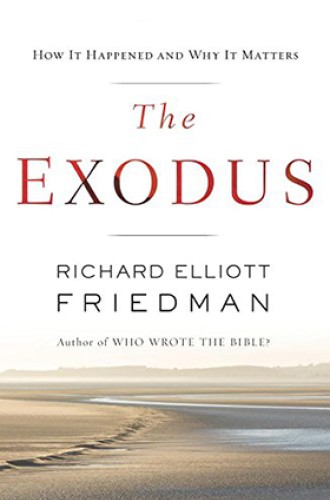Did the exodus really happen?
A new book challenges the scholarly consensus about one of the Hebrew Bible's central stories.
For anyone interested in the Bible, Richard Elliott Friedman’s new book is a game changer.
Friedman makes a credible and convincing case for the historical truth of a story that has been widely dismissed as wholly fictitious. Modern scholars see no need to posit an exodus event to explain the emergence of Israel. In this view, Israel grew organically out of Canaanite society at the end of the Bronze Age. Later literati invented that glorious national history of slavery and redemption. The loss of the exodus poses problems for Jews and Christians, since the story is so central to their theologies. But who can quarrel with scholarship?
So overwhelming is this skeptical view that at first sight it is alarming to see Friedman assert the reality of the exodus as a historical event. Yet he makes a powerful case. He admits that exodus did not involve a million or so people, as the Bible asserts, nor did it involve the whole people of Israel. It was a movement by a much smaller group who became known as the Levites, who fled Egypt and moved to join the preexisting settlement of the people of Israel in Canaan. They brought with them their god YHWH, whom they identified with the older El, the deity of the people of Israel. As the Levites wrote the nation’s history, they established the idea that the mass movement had involved the whole of what later became the Hebrew people. Friedman correctly credits David Noel Freedman as the originator of this Levite argument, but he develops it impressively.






